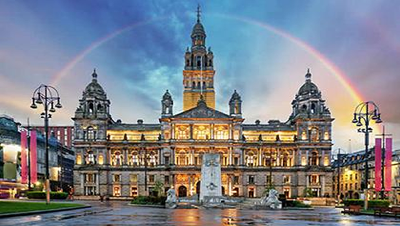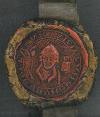
Join our Mailing List | Short Video
A short Video by The Leader, Councillor Susan Aitken about Glasgow's 850th Birthday Celebrations.
What is Glasgow 850?
Glasgow 850 is the 850th Anniversary of Glasgow becoming a burgh

Glasgow's journey to becoming the vibrant city we know today took a major step in 1175 when it was granted the status of a burgh. But what exactly does that mean?
In medieval Scotland, towns that were made burghs had special privileges. This included the right to trade, hold markets, and govern themselves to some extent. It was a significant recognition from the King, as it helped boost a town's economy and attract more people, traders, and businesses.
Glasgow of course existed before this date, as a diocese and small township, however, in 1175, a significant change occurred when King William I of Scotland, granted Glasgow the right to establish a burgh, marking a turning point in its history. This laid the foundation for Glasgow to evolve from a small religious settlement into an important economic centre.

The royal charter that established Glasgow as a burgh honoured St. Mungo, the city's patron saint. King William's grant of the burgh was given "for God, St. Kentigern (another name for St. Mungo), and to Jocelyn, bishop of Glasgow, and to each of his successors, forever."
In the 1190s, Glasgow's economy grew even further when it was granted the right to hold an annual fair in July. This tradition is still known (Glasgow Fair) to this day and helped solidify Glasgow as a hub of trade, attracting merchants and visitors from far and wide.
As the burgh grew, so did its governance. By the early 14th century, Glasgow had its own community seal, an important symbol of its civic identity. Citizens began gaining more independence in the 1440s, acquiring rights over common land and appointing a town clerk in 1444. By the early 1450s, the office of provost was established to lead the city, and by 1454, Glasgow had its own Tolbooth, a building used for municipal administration.
These early developments set the foundation for the thriving city Glasgow would become, with a legacy of trade, governance, and community that continues to shape it today. Building on the celebrations 50 years ago, when Glasgow was 800 years old, 2025 will see the city once again, remember its past, mark its present and look forward to its future.
Glasgow's 850th Birthday Celebrations
2025 will be a big year for Glasgow as we celebrate the city's 850th birthday. It's a milestone and everyone who has or does call Glasgow home is invited to the party.
We want to join and support partners to create a yearlong inclusive, citywide, programme of events and activities that reflect on how the city has transformed, particularly over the last fifty years and how we can inspire accelerated change, for a better, sustainable, future, over the next fifty years.
This anniversary provides an opportunity to:
- Join with partners to reflect on the city's transformation and growth since 1975 when Glasgow 800 was celebrated
- Speed up ambitions for the future centred around the Council's grand challenges of tackling poverty and inequality and increasing prosperity and opportunity
- Continue our fight against the climate emergency and improve our sustainability
- Put the River Clyde at the centre of this storytelling. The lifeblood of the city and is the symbol for community wealth building and climate action for the future.
- Enhance Glasgow's reputation and brand at home and abroad
- Delivering memorable moments and legacy for our city's communities.




